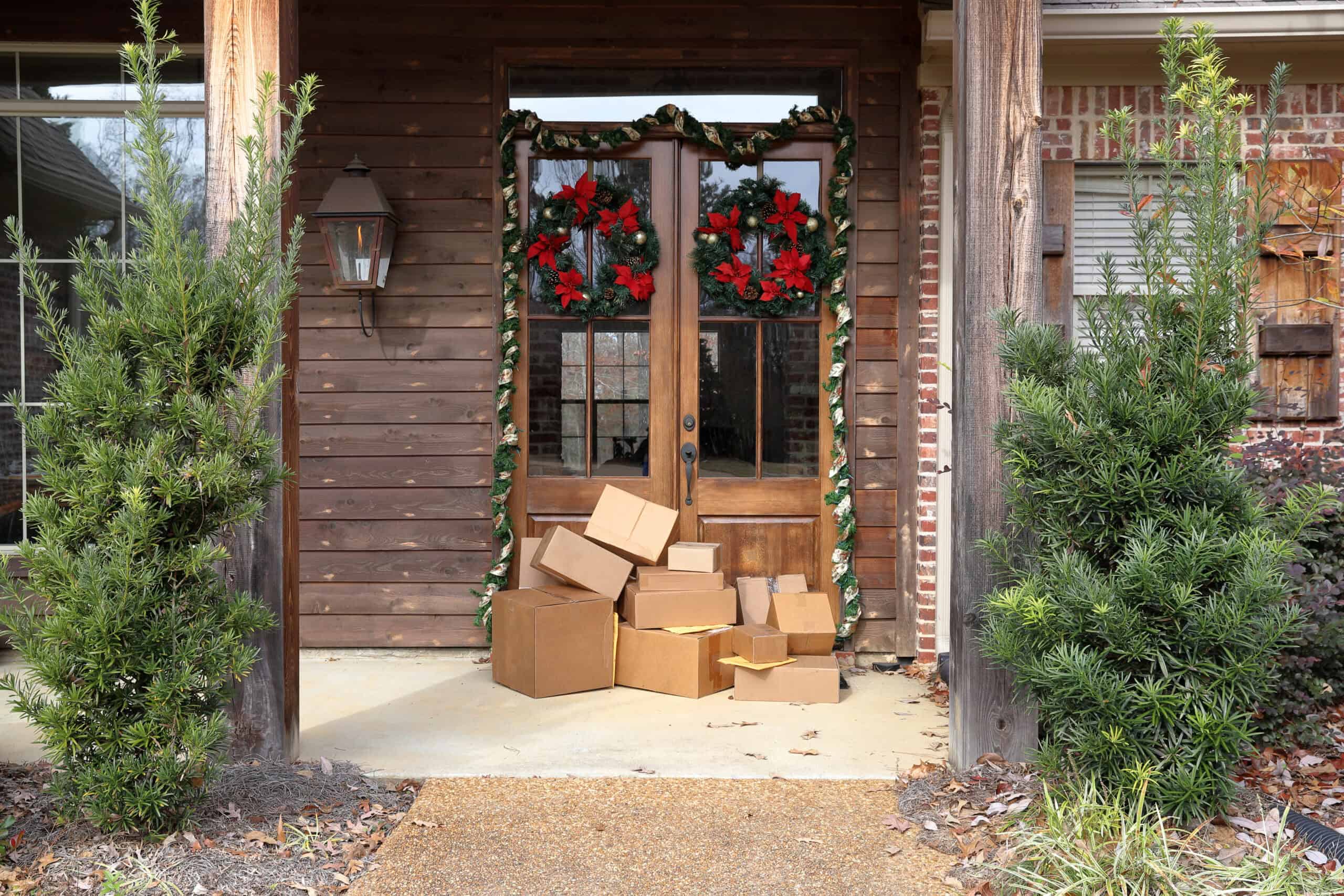
C5Media/Depositphotos.com
December 23, 2024
Can Insurance Help Mitigate Porch Piracy Losses?
With incidents of package theft spiking every holiday selling season, merchants and customers increasingly have options to secure porch piracy insurance to reduce the risk of significant losses.
Capital One statistics show package thefts in the U.S. totaled 119 million in 2023, equivalent to one out of every 180 package deliveries. A recent ValuePenguin survey of nearly 2,050 U.S. adults found that 41% have been a victim of porch piracy, up from 35% in 2022.
Most major carriers include free liability coverage for up to $100, but policies don’t cover stolen packages after they’re delivered.
For online sellers, porch piracy insurance coverage is available from third-party insurance providers, including XCover insurance from insurtech specialist Cover Genius as well as InsureShield, which is part of UPS’ financial services arm, UPS Capital.
InsureShield, which provides coverage for deliveries from major carriers like UPS, FedEx, USPS, and DHL, estimates on its website that, with an average net profit margin of 12%, an online merchant would need to generate $2,500 in new sales to recover from a $300 loss caused by porch piracy.
InsureShield’s marketing copy reads, “Porch piracy protection is an essential safeguard for businesses as well as to their customers. E-commerce businesses that protect their shipments can lower financial losses. This keeps customers loyal and satisfied.”
InsureShield also offers DeliveryDefense, an AI-driven tool that allows merchants to assess the level of delivery risk associated with certain addresses in various regions, thereby determining whether to divert packages to other locations or to purchase shipping insurance to protect against potential losses.
Consumers, many of whom have invested in doorbell cameras, expensive lock boxes, and self-service locker rentals to combat porch piracy, now also have an insurance option. As profiled in a recent Wall Street Journal article, PorchPals, which officially launched nationwide earlier this month, allows online shoppers to pay $120 a year to cover up to $2,000 of deliveries, or up to three claims a year.
Porch theft isn’t covered under standard credit card benefits. While package theft is typically covered by homeowners or rental insurance policies, it’s only helpful for purchases that are worth more than deductibles that typically range between $500 and $2,000. The insurance company may also increase the premium paid on a homeowners insurance policy due to the claim.
Currently, however, many retailers are absorbing the losses from their packages being stolen on front porches and doorsteps. Wall Street Journal reporter Imani Moise, who wrote the article on PorchPals, said on a WSJ Your Money Briefing podcast, “A lot of times the retailer will go ahead and either refund or replace that item because they don’t want to lose a customer.”
Online merchants could encourage shoppers to purchase porch piracy insurance.
Route, a Utah-based startup, enables online merchants to add an option at checkout for online shoppers to purchase package protection against porch piracy. Route, which also supports related claims resolution and package tracking, said adding package protection at the point of checkout “helps drive conversions because it guarantees they won’t be stuck empty handed in the unfortunate case of theft.”
Another option for retailers is not reimbursing or replacing items stolen post-delivery.
A recent survey of 1,000 Americans from home security system company Vivint found that when package theft occurred, the majority of shoppers (61%) reported receiving full compensation from the retailer, with 69% satisfied with how retailers handled their claims. However, 19% reported receiving no reimbursement.
Discussion Questions
Should retailers be purchasing insurance themselves — or encouraging online shoppers to purchase insurance — to help limit losses tied to porch piracy?
How generous should retailers be in reimbursing or replacing items lost due to porch piracy?
Poll
BrainTrust
Neil Saunders
Managing Director, GlobalData
Shep Hyken
Chief Amazement Officer, Shepard Presentations, LLC
David Biernbaum
Founder & President, David Biernbaum & Associates LLC
Recent Discussions







Retailers selling insurance to their customers to help defray porch piracy costs is not something I support. In my opinion, there will be too many abuses by customers, and the P&L side of the equation might get out of control. It is best to leave Pandora’s box alone since it is loaded with confusion, conflict, and frustration from all sides. To date, every industry that has gone this direction at some point in time wishes they hadn’t.
Interogatory interuptus: as other commenters here note, the question is incomplete: what’s left out is the caveat “…in a way that doesn’t bankrupt them?” And that’s really the issue: can a company afford to insure a risk they have little control over, and which would seem to be rife with the potential for abuse? (of course there’s also the issue of bad publicity over denied claims). But other than that, it’s a swell idea.
Retailers purchasing insurance would be expensive in an already margin thin part of retail. Offering it to customers sends mixed messages. The real solution is to find those that steal and prosecute them heartily, but that probably won’t happen!
I’m a little conflicted on this. Free shipping is important to customers, even though it’s not really free. (It’s built into the price of the product.) So, how much would it build insurance into the price of the product? I think that overall, it would be very little if it was baked into the price of every product.
Customers will pay for better service and higher value. If part of a company’s value proposition is that the customer’s package is insured (including porch piracy), and it is communicated properly, it may be a strong enough value-add that customers would choose that company over another.
Retailers are already dealing with tight margins, and constantly replacing stolen items isn’t sustainable. As for generosity, I think it’s reasonable to offer one-time goodwill replacements to keep customer trust, but making it a standard policy invites abuse.
Retail theft is a shared problem, not one-sided. Therefore, both customers and retailers need to take part in sharing this responsibility. Retailers can invest in secure delivery options, while customers can be more vigilant in keeping a check on their ordered items. It doesn’t make sense to blame either retailer or customer for every loss caused by someone else’s crime.